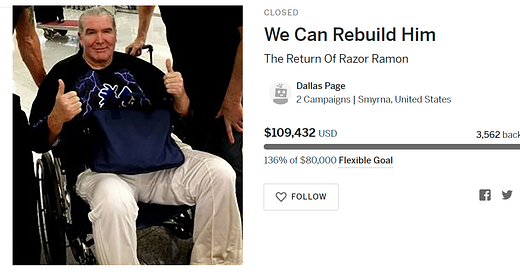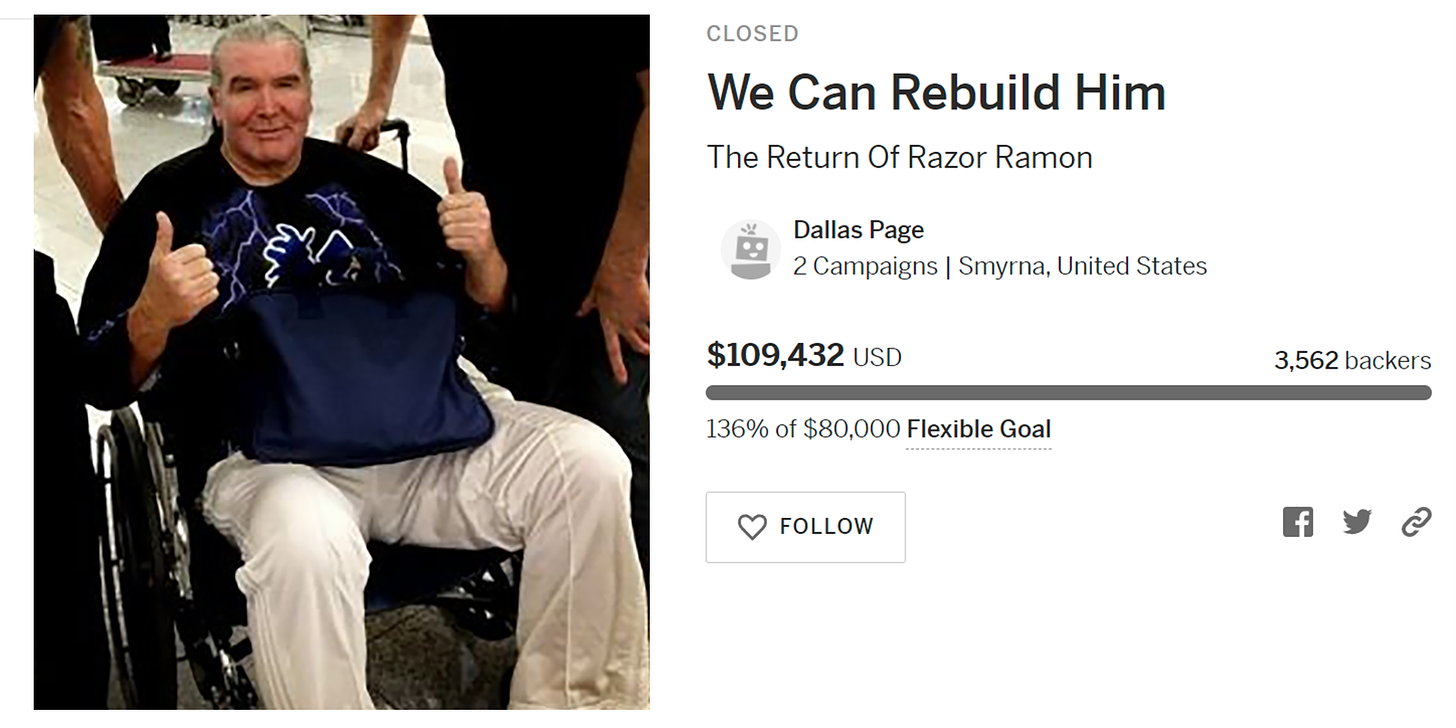RIP Scott "Razor Ramon" Hall
Pro-wrestling legend - and another victim of the US's failed health care system.
Scott Hall — also known by pro-wrestling fans around the world as Razor Ramon — has died at age 63. He will be remembered as a two-time WWE Hall of Famer, an absurdly decorated champion (I’m not going to even try to count the belts), and founding member of the legendary NWO stable. He’ll also be remembered for his in turn tragic and inspiring battle wit…
Keep reading with a 7-day free trial
Subscribe to Carl Beijer to keep reading this post and get 7 days of free access to the full post archives.





